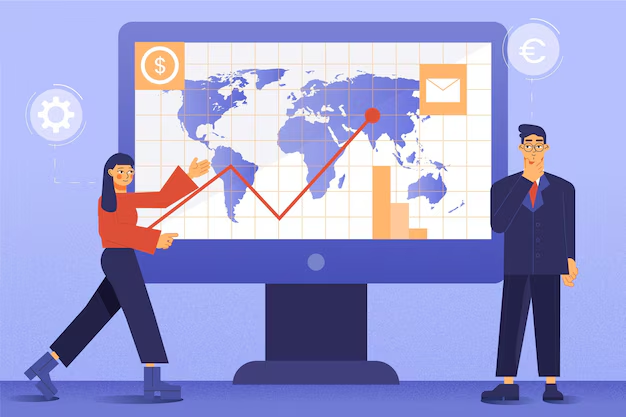European markets can experience a variety of shifts throughout the trading day. Several factors influence how stock indices perform, including economic data, corporate earnings, geopolitical events, and global market trends. Let’s explore how these factors impact the market.
1. Stock Market Overview
European markets typically include key indices such as the FTSE 100 (UK), DAX 30 (Germany), and CAC 40 (France). These indices represent the performance of the largest companies in their respective countries. The markets fluctuate depending on investor sentiment, economic reports, and global events.
2. Economic Data and Reports
Economic reports such as GDP growth, unemployment data, and inflation figures play a crucial role in shaping investor expectations. Positive economic data can boost investor confidence, while disappointing reports may lead to market declines. For example, strong industrial production in Germany can boost the DAX, while weak GDP growth in the Eurozone might affect markets across the region.
3. Corporate Earnings
Quarterly earnings reports from major companies can significantly impact market movements. If a company reports better-than-expected earnings, its stock price may rise, and the overall index could also see gains. Conversely, poor earnings reports can lead to stock price drops, affecting broader market sentiment.
4. Geopolitical Events
Political uncertainty, elections, or trade negotiations can lead to fluctuations in the European markets. For instance, Brexit negotiations or a political crisis in Italy might cause investors to be cautious, affecting stock prices across the region. On the other hand, positive geopolitical developments can increase market optimism.
5. Global Influences
European markets are also influenced by global events. Economic developments in the U.S., China, or other major economies can lead to changes in European market performance. For example, a strong performance in the U.S. stock market may influence European indices to rise as well. Similarly, global commodity price changes, such as oil or gold, can affect market trends in Europe.
6. Market Outlook
Today, European markets might be influenced by a mix of factors, such as recent corporate earnings, inflation data, or updates on global trade tensions. Investors often keep an eye on U.S. market performance overnight, as trends in major global stock exchanges can influence European opening hours.
7. Impact of Interest Rates on the Markets
Interest rates, set by central banks like the European Central Bank (ECB), play a major role in shaping the European financial markets. When the ECB changes interest rates, it affects borrowing costs for businesses and consumers, which in turn impacts stock market performance. A rate hike can signal that the economy is strong, but it may also dampen spending and investment, leading to a market slowdown. Conversely, a rate cut can encourage borrowing and investment, potentially boosting stock prices.
8. The Role of Currency Movements
The Euro is the most widely traded currency in Europe. Fluctuations in the Euro’s value against other currencies, like the U.S. Dollar, can influence the stock market. For example, if the Euro strengthens against the Dollar, European exports may become more expensive, potentially hurting the profits of major exporters. On the other hand, a weaker Euro can make European exports more competitive, benefiting export-heavy companies.
9. Sector Performance in European Markets
In addition to overall market trends, different sectors can perform differently based on global and local economic conditions. For example, energy stocks may rise if oil prices increase, while technology stocks may gain if there is strong growth in the tech sector. Keeping an eye on sector performance helps investors identify which areas of the market are thriving or struggling on any given day.
10. Investor Sentiment and Market Volatility
Investor sentiment, driven by factors such as news, reports, or even rumors, can dramatically affect the behavior of the stock market. Positive sentiment tends to push stock prices higher, while negative sentiment can lead to market pullbacks. European markets are not immune to volatility, and sometimes, sudden market swings occur due to a shift in investor mood or external shocks, such as natural disasters, health crises, or financial market collapses.
11. Tech and Innovation Driving Market Changes
As technology continues to innovate, European markets are seeing growth in tech-driven sectors. Companies involved in cloud computing, AI (artificial intelligence), renewable energy, and biotechnology are becoming increasingly important. The performance of these innovative sectors can influence the overall direction of the markets. Today, many investors are closely watching these sectors for signs of growth or potential disruption.
12. Sustainable Investing in European Markets
There has been a growing trend in sustainable and socially responsible investing (SRI) in Europe. Investors are increasingly looking at companies with strong environmental, social, and governance (ESG) criteria. These companies may be seen as less risky in the long term, leading to positive stock performance. As European regulators tighten environmental policies, companies that align with these standards could gain favor in the markets.
FAQs About European Markets
Q: What are the main European stock indices?
A: The main European stock indices include the FTSE 100 (UK), DAX 30 (Germany), CAC 40 (France), and Euro Stoxx 50, which represents companies across the Eurozone.
Q: What factors impact the European markets?
A: Key factors include economic data, corporate earnings reports, geopolitical events, global market trends, and investor sentiment.
Q: How do economic reports affect European markets?
A: Strong economic reports, such as higher GDP growth or low unemployment, can boost market confidence, while weak reports may lead to declines.
Q: How can geopolitical events affect European stock markets?
A: Political instability or uncertainty, like elections or trade disagreements, can cause fluctuations in market performance. Positive developments may increase investor optimism.
Q: Do global markets affect European performance?
A: Yes, European markets are influenced by developments in major global economies, particularly the U.S. and China. For example, strong U.S. economic performance can positively affect European markets.
Q: Can I predict the market’s behavior for the day?
A: Predicting exact market movements is difficult. However, analyzing current economic data, corporate earnings, and global events can provide an indication of potential market trends.



